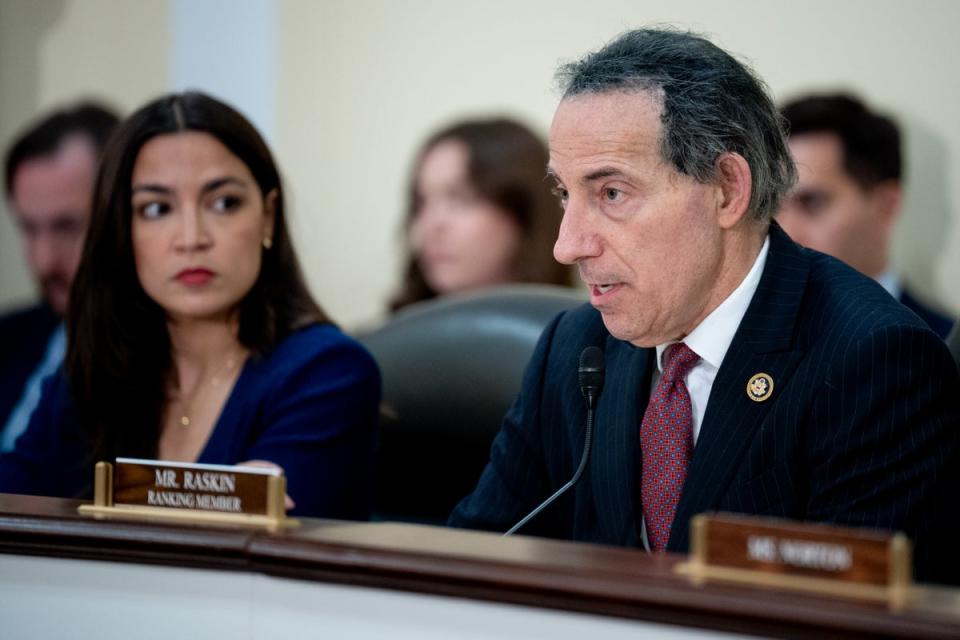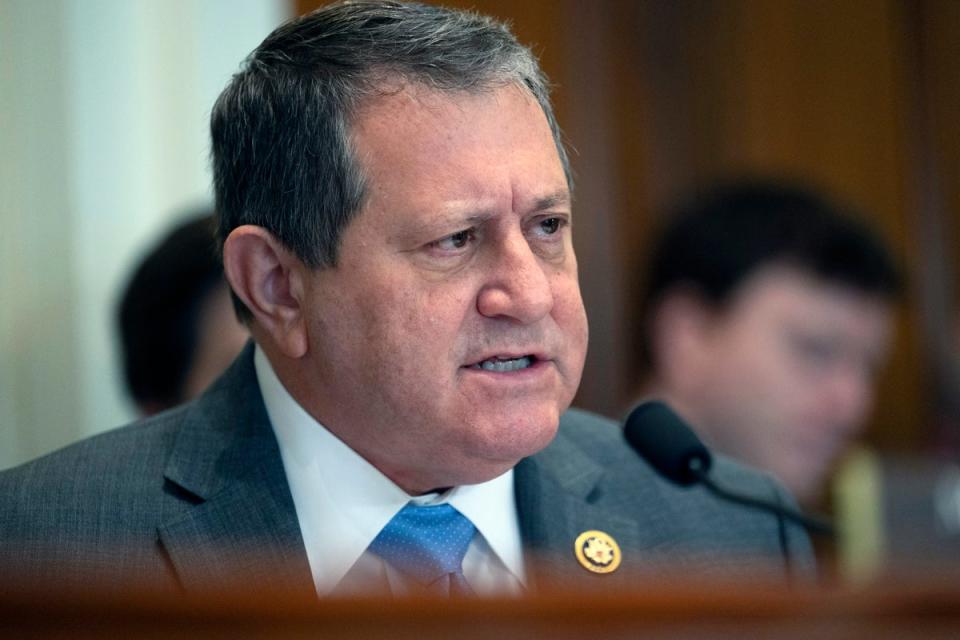Impeach, expand, investigate: How Democrats in Congress are trying to rein in the Supreme Court
- Oops!Something went wrong.Please try again later.
- Oops!Something went wrong.Please try again later.
Two centuries after the constitution’s authors warned against an “elected king” in the executive office, the Supreme Court kicked off the week of the Fourth of July with a sweeping decision on presidential immunity that Justice Sonia Sotomayor said will create “a king above the law.”
Democrats in Congress have introduced several pieces of legislation to overhaul the Supreme Court, from codes of ethics to attempts to block precedent-shredding decisions that will have profound effects on government and society. They’re likely to fail.
Impeaching the justices
Representative Alexandria Ocasio-Cortez plans to file articles of impeachment against the justices, citing a court that has “become consumed by a corruption crisis beyond its control,” she announced this week.
The immunity ruling “represents an assault on American democracy. It is up to Congress to defend our nation from this authoritarian capture,” she said.
Ocasio-Cortez, a prominent progressive Democrat on the influential House Oversight Committee, did not specify which justices would be targeted for impeachment.
A now-deleted response from Representative Veronica Escobar said “count me in.”

The only successful impeachment of a Supreme Court justice was against Samuel Chase in 1804 on charges that he used his seat for political gain, and to “prostitute the high judicial character with which he was invested, to the low purpose of an electioneering partisan.” He was later acquitted in the Senate.
A new constitutional amendment
AOC’s fellow New York Representative Joe Morrelle is introducing a new constitutional amendment that would explicitly state that presidents are not immune from criminal prosecution in an attempt to reverse the high court’s ruling.
Morrelle, the top Democrat on a House committee with federal election oversight, said his proposed amendment will do what the justices “failed to do – prioritize our democracy.”
“The Supreme Court decision will cause a seismic shift in the powers of the presidency unless we take immediate action to ensure accountability, integrity, and justice prevail,” he added.
The Republican-majority Supreme Court granted Donald Trump some immunity from prosecution for allegedly trying to overturn the results of the 2020 presidential election. The decision granted the presidency “absolute” immunity from prosecution for actions that can be considered “official” duties, and the assumption of immunity for actions in the “outer perimeter” of those duties.

That decision “erodes the public’s confidence in our institutions and poses as great a threat to our democracy as the behavior of the former president and his enablers,” Morrelle said.
“This amendment will guarantee that no public officer of the United States – including the president – is able to evade the accountability that any other American would face for violating our laws,” Morelle wrote in a letter to colleagues this week.
Expanding the court
Several Democrats in the House and Senate have issued calls to expand the number of seats on the Supreme Court from its current nine-member panel, a makeup that has been the same since 1869 when there were only nine circuit courts taking up litigation that would get to the high court. There are now 13.
Last year, Democratic Senators Ed Markey, Tina Smith and Elizabeth Warren, with House Democrats Jerry Nadler, Cori Bush, Hank Johnson and Adam Schiff, reintroduced the Judiciary Act, which would add four more seats to the bench. Lawmakers first introduced the bill in 2021.
“This is a rogue, untethered, and damaging Supreme Court,” Markey said this week. “Maga extremist justices also are ignoring the festering corruption in their ranks. We need justices committed to justice. Stolen seats filled with partisan hacks lead to alarming results.”
Ethics investigations
It is extremely unlikely that any of the above measures survive in a Republican-dominated House and a deadlocked Senate.
Congressional Democrats have also been trying to impose ethics and transparency rules for Supreme Court justices, efforts that were quickly swatted down by Senate Republicans.

Senate Judiciary Chair Dick Durbin, the leading Senate Democrat on Supreme Court ethics reform, has led committee hearings into the state of the high court after bombshell investigations revealed GOP megadonor support for Justice Clarence Thomas, among other previously undisclosed gifts and vacation travel.
Durbin also led calls for Justice Samuel Alito to recuse himself from January 6-related cases after it was revealed he was flying an upside-down American flag outside his properties.
Last month, Senate Republicans blocked a vote on a bill that would enforce ethics obligations at the high court.
Durbin said he will revive the legislation in the wake of the court’s immunity ruling, warning that the justices have stripped the Department of Justice “of its valued independence and undermined its commitment to the rule of law.”
Chief Justice John Roberts has repeatedly turned down requests from Democratic lawmakers about growing ethics concerns.
He now has until July 5 to respond to a letter from AOC and Democratic Representative Jamie Raskin, who are pressing for answers to questions about ethics lapses that are “turning into a full-blown legitimacy crisis,” they wrote.

